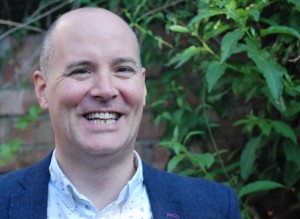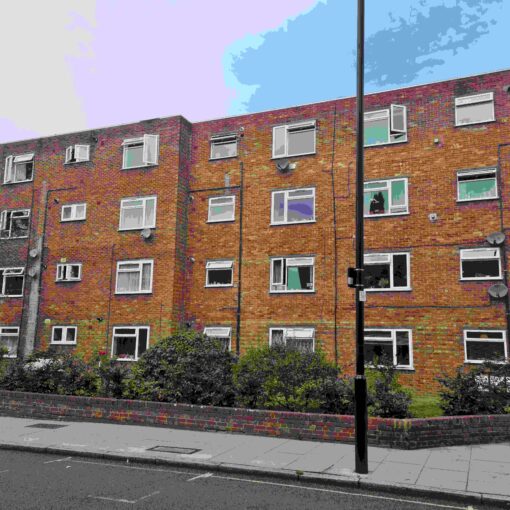After helping found Future Climate in 2011, Andy Deacon is rejoining the organisation. Who is he, what are his priorities and – in the middle of a wave of government cuts – where does he see the good news?
 You’ve worked across a number of sustainability issues, which is the one you feel most passionately about?
You’ve worked across a number of sustainability issues, which is the one you feel most passionately about?
Currently, air quality (in London in particular) and with the Paris climate talks looming large, a global deal to help cut greenhouse gas emissions. I was, for a short while, an international negotiator on climate impacts and adaptation, and understand how difficult reaching agreement at that sort of scale will be.
The government’s been busy cutting a lot of the sustainable energy policy framework….. where’s the good news? There’s a lot of interest in what cities can and are doing. The C40, Rockefeller 100 Resilient Cities work and the smart cities agenda are showing what could be achieved and are helping to deliver practical solutions. Having worked with the community energy sector, there’s still plenty of potential there that could be spread more widely, from on the ground local engagement to business models linking energy saving and generation, and other aspects of sustainability. European legislation is also continuing to drive new developments for example in developing the energy services market and in looking at attracting investment into further improving energy efficiency. Having worked in expert groups supporting the Energy Efficiency Directive, there are interesting finance models from across Europe that could translate well to the UK and vice versa.
Back in 2011 you helped found Future Climate. Why did you think another sustainability organisation could make a distinctive contribution? When we launched Future Climate the idea was to link policy implementation with lessons from implementation and to close the loop on learning about what works (and why) and what doesn’t. Recent work on consumer experiences with solar PV and on some of the issues between landlords and tenants on home retrofits in the private rented sector have done exactly that. The ability to use quantitative and qualitative evaluation methods and techniques to make practical policy recommendations is something that not everyone is using and an area where Future Climate will continue to work. In some key areas, such as the private rented sector, progress has been really good, and the issue has moved right up the policy agenda. I’d like to see us apply our approach across a wider range of sustainability issues (bringing in air quality for example) and to build on Future Climate’s work for the Overseas Development Institute and to look internationally at lessons on business models, and climate and energy finance.
How did you get here? I trained in geography and environmental studies at university and then took a masters degree in meteorology and climatology. My initial interests were in urban air quality and climate, and my career grew from there. I was lucky to work for some influential bodies early on, the Quality of Urban Air Review Group and the Royal Commission on Environmental Pollution and they helped both sharpen some of my research and analytical skills and broaden my sustainability knowledge. Having worked in the charity sector, for local, regional and central government and in research, I’ve had a diverse set of roles across a range of sustainability subjects. I’m bringing that experience and understanding to a new set of projects and issues with Future Climate.
You’ve worked on energy efficiency in Brazil, Korea and across Europe. In between the caipirinhas and kimchi, which bits of the UK experience do you find are most interesting for international policy makers tackling sustainable energy? The UK has some well-developed analytical approaches to looking at low carbon scenarios and making forward projections of policy impacts. I’ve worked in Brazil on preparing a set of climate change scenarios for the transport and domestic sectors. There’s also been considerable interest in approaches to financing and business models for sustainability. Europe’s Energy Efficiency Directive is a big one and builds on some of the UK approaches to energy services models and large scale home retrofit finance. I’ve supported the UK government in cross-government working groups looking at how we can maximise the directive’s effectiveness. Chairing the Finance Innovators Group of local authorities for the Energy Saving Trust enabled plenty of peer group learning among local authority teams and gave a pool of great case studies to build on.
You’ve also led a fair few European projects. Where are the areas where sustainable organisations across Europe need to be collaborating most urgently? I think pan European work on energy has been positive, both to keep the UK’s ambition level up and to draw on best practice examples from other member states. When it comes to models for financing retrofit in social housing, there’s been some good work in France and a number of Scandinavian countries continue to lead the way on district/area based heating and cooling. There is still more that could be done on energy services models, contracts and financing to help new non traditional market entrants and also innovation support to continue technology development, for example in areas like solid wall insulation, where there is still scope to improve products and consumer offers. All of this is brought together in cities and there is increasing scope for practical collaboration and I’d like to help facilitate that.
You’re just cycled 500km with a green cycling group. Who’d be your ideal green cycling companion? I’m a Bradley Wiggins fan and hope he does brilliantly in Rio at the Olympics to crown a fantastic career, but I’m not sure about his green credentials.


